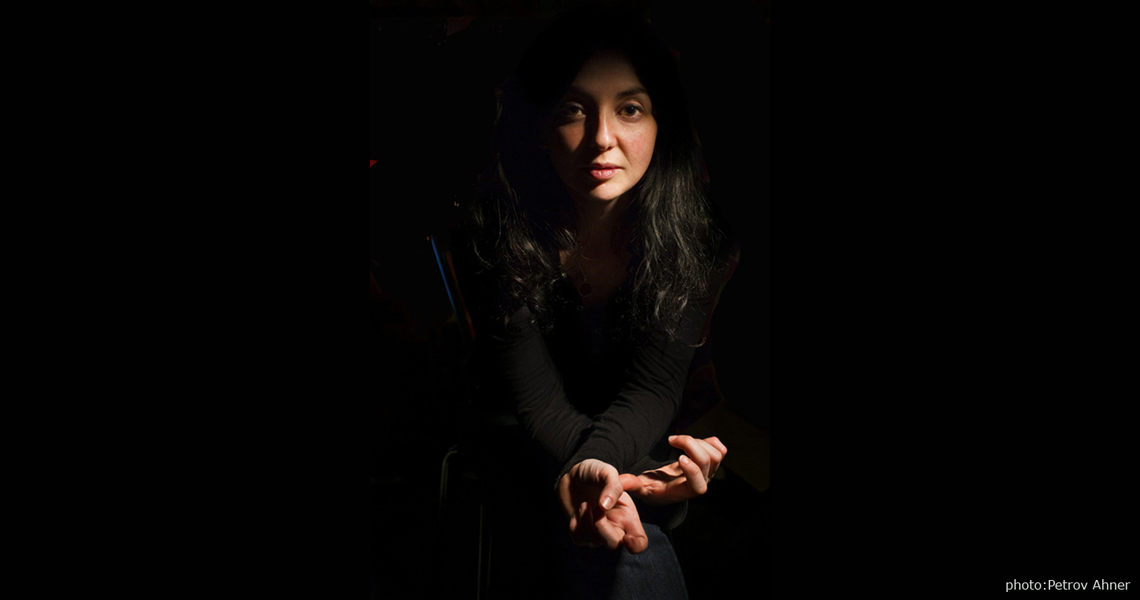
Since January 2020, Barbara Fragogna has been strengthening the Discovery Art Fair as a new member of the team of curators.
The Italian, who was born in Venice, has been at home in the international art world for more than 20 years. From 2008 to 2012 she worked as art director of the Tacheles Art House located in Berlin, in 2013 she founded the publishing house Edizioni Inaudite and from 2015 she is the director of the Fusion Art Gallery / INAUDITA in Turin. The focus of her curatorial activities lies on the presentation of emerging contemporary art and the strengthening of international art and cultural exchange. Therefore she has collaborated with institutions, galleries and artists worldwide on numerous international exhibition projects.
We met the new fair curator at this year’s Discovery Art Fair strategy meeting for a short interview in which she reveals the goals of her curatorial practice and shares some tips for young artists and less experienced art buyers.
The Discovery Art Fair focuses on new artistic discoveries, on fresh and young art. In your opinion, what characterizes the up-and-coming art scene today?
Every year we have hundreds of young artists coming out of the art academies all over the world. This is an enrichment and a problem at the same time. On one hand, a positive globalized competition pushes forward the professionalism, quality and strength of any individual research. On the other hand, as the artist’s work is not legally recognized globally as a decent and regulated job, we have a surplus of talented and devoted artists that have less and less chances to emerge.
As a result of this paradox I see a positive evolution of the so-called “art world” into a proactive universe of potential opportunities, because these young generations are fluid, mixed and motivated. But this is only a starting point; there are many other things to say.
Do you have any advice for the young generation of artists?
Travel, watch out, be brave, try to understand exactly who you are and what you want, be honest, learn about more than art, be interested in science, ecology, economics and politics. Remember that you are not a decorator.
What do you see as the greatest challenges in your work as a curator?
The greatest challenge for a curator, to me, is to break the shell of the elitist art system in order to approach and educate a wider audience. This will possibly give the artists (that have the most important, relevant and necessary role in the art world) a chance to live in dignity in their own work.
The education of the public is one of my main goals. I’m a practical person and I believe in action more than words. Over the years I’ve built places, projects, and connections where these ideas have been put in practice. At the moment I’m running the INAUDITA’s project in Turin, Italy. It consists of: a gallery (Fusion/Inaudita), an artist-in-residence program, and a publishing house (Edizioni Inaudite).
Can you explain how your artistic practice influences your curatorial work?
My curatorial practice is a direct consequence of my artistic research. As an artist, my goal and nature is to create a direct dialogue between the audience and the artist.
In order to establish a real and concrete statement, in 2013 with Elisa Ganivet (Doctor of Philosophy, Art Historian and Cultural Manager), we wrote the Manifesto “Zero Filters”, which explains exhaustively my point of view on this topic: “The fine-tuned work of exhibiting art must be freed of all strangleholds. Seeing and understanding what is, without frills; this is our destiny as promoters of artists. In our ever growing devotion, we are only concerned with the artist’s work and the public’s regard. We aim to protect the development of talent, freeing it of all outside opinion.” (…)
How would you finish this sentence? Curators need to be able to…
…be the perfect filter between the public and the artist. The curator should not be a superstar but rather a passionate and efficient mediator.
What hopes and wishes do you have for the future of the art market?
I hope and wish that more people will learn to approach and purchase artwork following their own ideas and tastes.
I wish everybody would be able to understand that art collecting is not a privilege of a few people but rather a fulfilment of a natural and individual desire.
Finally, do you have any tips for those who want to buy a work of art for the first time?
Do not be afraid of somebody else’s judgment. The desire to own an art piece is like “love at first sight”, you know immediately, this feeling is genuine. Trust it.


